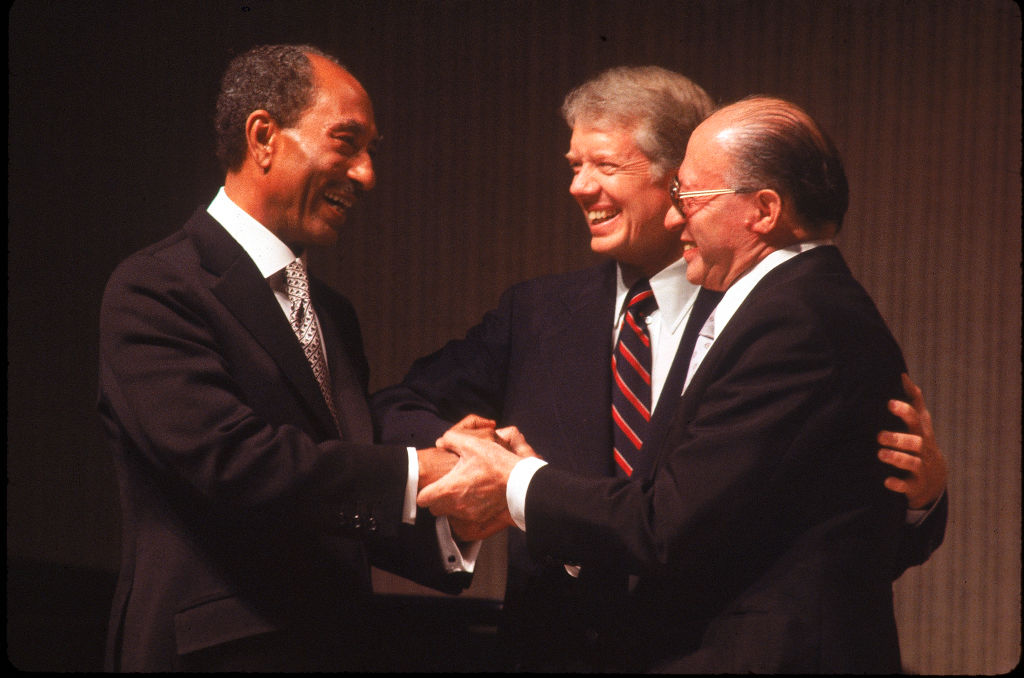From the bookshelf: ‘American Policy Discourses on China’

In her new book, Yan Chang Bennett explores historical US views of China. They have ranged from evangelical promises of redemption to hard-nosed capitalism exploiting vast opportunities. Bennett argues that these perspectives have shaped US foreign policy for centuries and often form the bases of China policy for new administrations.
Based on examination of recently declassified foreign-policy documents, Bennett guides readers through three centuries of United States-China relations focusing on three pivotal moments: president Richard Nixon’s rapprochement with China; Jimmy Carter’s normalising of US-China relations, and Bill Clinton’s advocacy of China’s World Trade Organization (WTO) accession.
Before Nixon’s presidency, China was viewed in the US as a communist foe. The administration reshaped policy and in doing so drew on 19th and early 20th century US views and sentiments. These included a mix of missionary impulse and the idea of China as an untapped economic opportunity. Nixon promoted the idea that China, if left in isolation, would be an aggrieved giant threatening global peace, whereas reintegrating it into the global community would bring advantages to the US and also to China.
Building on Nixon’s rapprochement policy, and in line with earlier notions that helping China was the US’s ‘special undertaking’, the Carter administration saw the country as a candidate for democratisation as well as a vast market for US goods. It believed that if China normalised relations with the US, its economy could move to free markets, and its system of government could become more like those of Western Europe and the US. Bennett’s historical analysis shows Carter could not have been more naive about these reform prospects when dealing with China’s then leader, Deng Xiaoping.
It was at that time the US acknowledged the Chinese position ‘that there is but one China and Taiwan is part of China’, declaring, however, that the US would ‘maintain cultural, commercial, and other unofficial relations with the people of Taiwan’ and that it would ‘continue to have an interest in the peaceful resolution of the Taiwan issue.’ The US opened official diplomatic relations with the People’s Republic of China on 1 January 1979.
Clinton’s presidency, in turn, built on the policy steps taken by Nixon and Carter by championing China’s accession to the WTO. He too was convinced this would lead to liberalisation and democratisation. Bennett argues this enduring belief reflects those long 19th century US attitudes. They were false. At the same time these US policies were being advanced, the Chinese government held its own shrewd and pragmatic perspectives about its relationship with the US, concerned about its interests and historical contexts.
US activities to assist China’s entry to the WTO, which Clinton predicted would enable almost unlimited access to the Chinese market, were flawed on many levels. Systematic misinterpretations came from US perceptions of China that were not rooted in reality.
China did not go for fundamental economic liberalisation, and Bennett says Clinton’s China hands should not have expected any such thing from China’s authoritarian government. For example, Beijing established tighter controls over its giant state-owned enterprises and pegged its currency to the dollar at artificially low levels, ‘bestowing significant competitive advantages to Chinese exporters’.
As Bennett says, it is now clear that WTO accession granted China entry into the world economy, fuelling its astounding economic growth. But what was also clear all along is that China acted in its own economic interest, exploiting Clinton’s vocal support. Not once in Clinton’s eight years in power from 1993 did China say it would become a democracy in the likeness of the US or would make economic reforms that would lead to political liberalisation.
With China rejecting Western ideologies, Bennett advocates a pragmatic reassessment of US policy. She argues it must avoid ‘emotional rhetoric, and idealised frameworks’, such as the belief in liberalisation and democratisation which drove support for China’s accession to the WTO, even though evidence for such hope was weak.
Bennett sees an enduring nature in 19th and early 20th century US perceptions of China, with their repetition in current US policy. Present narratives continue to emphasise China as ‘buried deeply in the past’. They extend to China’s leader, Xi Jinping, who is presented in media as a ‘timeless Confucian emperor’. In fact, since his birth after the establishment of the People’s Republic, his entire education has been steeped in Marxist-Leninist principles of governance.
Using historical data, Bennett’s book offers insights for the incoming administration of Donald Trump. Her analysis matters in a world where China charts an independent path under Xi Jinping and where Trump’s agenda of making America great again aims to counter perceptions of US decline.
Since Trump’s 2024 victory, Bennett has separately proposed six ways for the US to counter China: modernising US military capabilities; prioritising the Indo-Pacific; strengthening economic leverage; sharing the burden of global leadership; investing in technology and innovation; and building energy independence and resilience.

